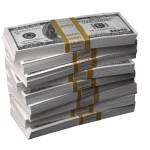
A recent suspension imposed by the Nevada Supreme Court sends a cautionary message to lawyers who might offer to pay money to fact witnesses. The lawyer, Jonathan Callister, sent a letter to a person who witnessed a will that Callister’s client disputed. Callister offered the witness $7,000 “[i]n exchange for your honest testimony. . . that you never witnessed the Decedent signing a will,” and noted “the legal implications of perjury” if the witness did not disavow the will. In suspending Callister for 35 days, the court stated that “[i]t is unethical for a lawyer to offer money to a fact witness contingent on the content of the witness’s testimony.” See In re Callister, No. 70901 at 2 (NV. 2017). Even though the testimony that Callister solicited was truthful, his offer of payment was nonetheless contingent on the substance of the witness’s testimony and thus violated Nevada Rule 3.4(b) (which provides that a lawyer shall not “offer an inducement to a witness that is prohibited by law”). Id. at 4.
All payments to fact witnesses, however, are not unlawful. Several ethics opinions have considered and approved payments of costs and lost income. For example, a 2017 West Virginia advisory opinion addressed “whether fact witnesses can be compensated for lost time spent testifying and/or preparing to testify.” See W.V. L.E.O. 2017-01 (May 22, 2017). The Board found that “reasonable” compensation for preparation does not violate the state’s professional conduct standards:
[C]ompensating a fact witness for time spent preparing for testimony and being interviewed is permissible under the Rules of Professional Conduct. This is only allowed if the compensation is reasonable and not based upon the outcome of the litigation. The agreement to pay compensation should be in writing and disclosed to the opposing side.
Id. at 7.
Are such payments to a fact witness permissible in Louisiana? Yes. Louisiana Rule of Professional Conduct 3.4(b) provides that “[a] lawyer shall not . . . offer an inducement to a witness that is prohibited by law.” Given this language, a lawyer must “look outside the rule to ascertain which inducements are prohibited by law and therefore unethical.” See ABA/BNA Lawyes’ Manual on Professional Cond. § 61:718 (2007). Louisiana law expressly prohibits only one type of “inducement”—a bribe. “Bribery” is the “giving or offering to give, directly or indirectly, anything of apparent present or prospective value” to any “[w]itness, or person about to be called as a witness, upon a trial or other proceeding” if the payment is made “with the intent to influence his conduct . . . .” See La. Rev. Stat. § 14:118(A)(1)(d); see also 18 U.S.C.A. § 201.
Louisiana case law contains no per se prohibition against payments to fact witnesses. The few reported decisions that address the issue reflect judicial disapproval only when the payment is made with improper motive. For example, the Louisiana Supreme Court disbarred a lawyer for paying a bribe to a witness with the intent to influence the witness’s testimony. See In re Hingle, 717 So. 2d 636 (La. 1998). Likewise, the Louisiana Supreme Court disbarred a lawyer who made a payment to a witness for the purpose of inducing him “to provide false and misleading information.” See La. State Bar Assoc. v. Thierry, 573 So. 2d 1099, 1103 (La. 1991). The Louisiana Supreme Court suspended a lawyer, in part, because he made a payment to a fact witness whose cooperation was contingent on the payment. See In re Bruno, 956 So. 2d 577, 578-79 (La. 2007).
Although no reported Louisiana decision addresses whether it is appropriate to pay a fact witness for the witness’s lost income and expenses attendant to trial or deposition preparation, the preponderance of persuasive authority suggests that a lawyer should not be subjected to discipline for making such a payment. For example, the Restatement of the Law Governing Lawyers permits a lawyer to pay the “reasonable expenses of the witness incurred and the reasonable value of the witness’s time spent in providing evidence.” See Restatement (Third) of the Law Governing Lawyers § 117(1) (2000). Comment “b” to this section clarifies that it encompasses time and expenses “incurred in preparation for and giving testimony, such as lost wages caused by the witness’s absence from employment.” Id. cmt. b (emphasis added). Likewise, the American Bar Association Committee on Ethics and Professional Responsibility has opined, as have most state bar associations that have considered the issue, that Model Rule 3.4(b) permits lawyers to pay fact witnesses for the income actually lost and expenses actually incurred to prepare for trial testimony. See ABA Comm. on Ethics and Professional Responsibility, Formal Op. 96-402 (1996). According to the committee,
there is no reason to draw a distinction between (a) compensating a witness for time spent in actually attending a deposition or a trial and (b) compensating the witness for time spent in pretrial interviews with the lawyer in preparation for testifying, so long as the lawyer makes it clear to the witness that the payment is not being made for the substance (or efficacy) of the witness’s testimony or as an inducement to “tell the truth.” The Committee is further of the view that the witness may also be compensated for time spent in reviewing and researching records that are germane to his or her testimony, provided, of course, that such compensation is not barred by local law.
Id. In summary, the Louisiana Rules of Professional Conduct, relevant statutory law, case law, and persuasive authority all indicate that a lawyer should not be subjected to discipline for paying a fact witness if:
- the payment is not motivated by an improper purpose, such as to obtain “inside information,” to obtain false testimony or to influence the content of the witness’s testimony;
- the amount paid merely compensates the witness for the reasonable value of the time and expenses actually incurred by the witness; and,
- the amount of the payment is not contingent on the witness’s testimony.
